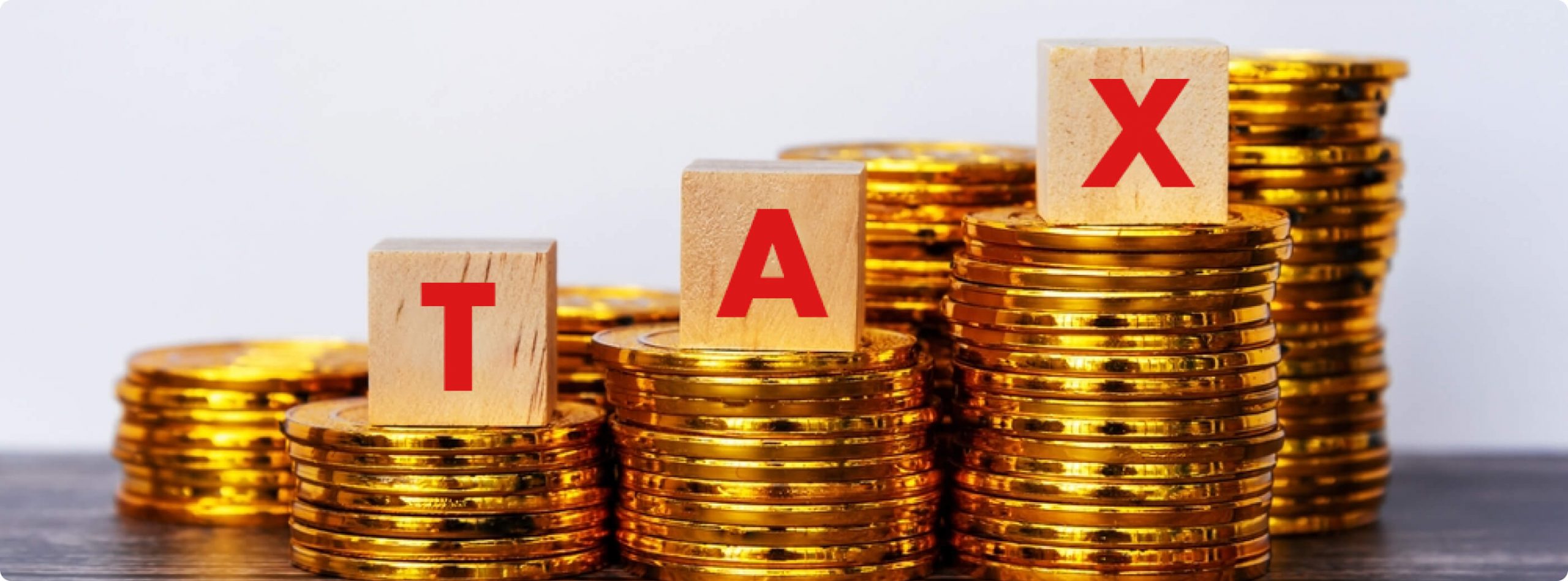Understanding Gold Taxes: All You Need to Know!

5min read

Gearing up to invest in gold? There are a few things you should know about taxes before you dive in. As with most investments, gold investments come with their own set of taxes and regulations. To ensure you’re setting yourself up for success, it’s important to understand the ins and outs of taxes on gold. Read on to get an overview of all the key points you need to consider when investing in this precious metal.
Income tax on gold:
If you sell gold that you have held for more than three years, it is considered a long-term capital asset, and any profit you make on the sale is subject to long-term capital gains tax. The current rate of long-term capital gains tax on gold is 20% with indexation.
If you sell gold that you have held for less than three years, it is considered a short-term capital asset, and any profit you make on the sale is subject to short-term capital gains tax. The current rate of short-term capital gains tax on gold is the same as your income tax slab rate.
Goods and Services Tax (GST) on gold:
GST is applicable to gold in India, and the rate of GST depends on the type of gold you are buying.
a) If you are buying gold jewellery, the current GST rate is 3%.
b) If you are buying gold bars, coins, or any other form of gold, the current GST rate is 5%.
It’s important to note that if you are buying gold jewellery, there may be additional charges like making charges, which are not subject to GST.
Wealth Tax on gold:
Wealth tax is applicable to individuals who have a net wealth of more than Rs. 30 lakhs. The net wealth includes assets like cash, jewellery, property, etc. The wealth tax rate is 1% of the net wealth exceeding Rs. 30 lakh. However, gold coins, bars, and biscuits weighing up to 50 grams per person is exempt from wealth tax.
Customs duty on gold:
Customs duty is a tax that is levied on goods that are imported into India. The current rate of customs duty on gold is 12.5%. This duty is applicable to gold bars, coins, and any other form of gold that is imported into India.
Making charges on gold jewellery:
Making charges are the charges that you pay to the jeweller for making the gold jewellery. These charges are not subject to any tax in India, including GST. Typically, making charges range from 8% to 35% of the total gold price.
Gold Monetization Scheme:
The Gold Monetization Scheme was introduced by the Indian government to encourage people to deposit their gold and earn interest on it. Under this scheme, the deposited gold is melted, refined, and used by the government for various purposes. The depositor earns interest on the deposited gold, and the interest earned is exempt from income tax.
In summary, gold is subject to various taxes in India, including income tax, GST, and customs duty. The tax rates depend on the type of gold you are buying or selling. It’s important to understand the tax implications of buying or selling gold in India to avoid any unexpected tax liabilities. Additionally, the Gold Monetization Scheme is an excellent way to earn interest on your gold while also contributing to the country’s economy.







